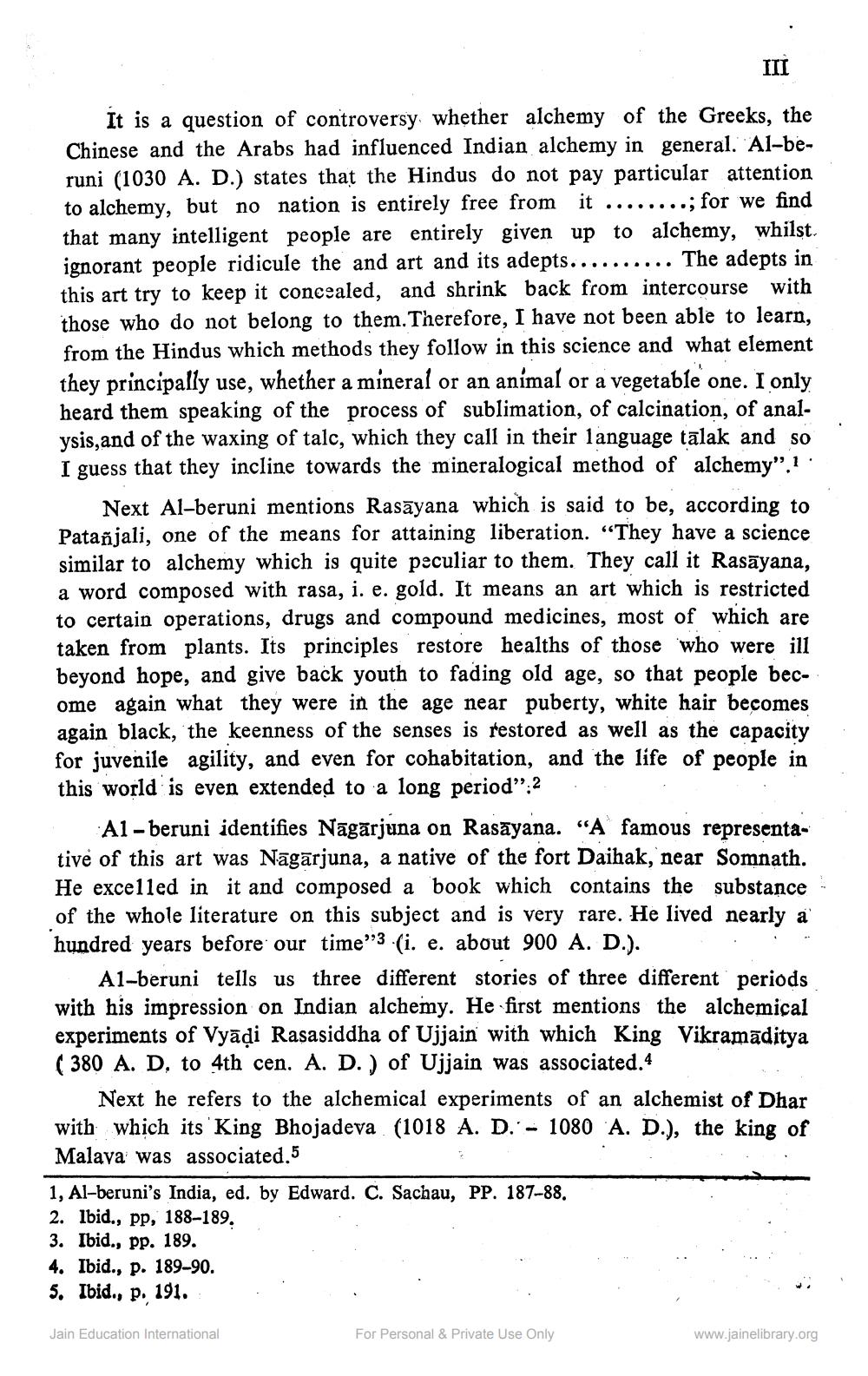Book Title: Suvarna Raupya Siddhi Shastra Author(s): J C Sikdar Publisher: L D Indology Ahmedabad View full book textPage 8
________________ III It is a question of controversy, whether alchemy of the Greeks, the Chinese and the Arabs had influenced Indian alchemy in general. Al-beruni (1030 A. D.) states that the Hindus do not pay particular attention to alchemy, but no nation is entirely free from it ........; for we find that many intelligent people are entirely given up to alchemy, whilst. ignorant people ridicule the and art and its adepts.......... The adepts in this art try to keep it concealed, and shrink back from intercourse with those who do not belong to them. Therefore, I have not been able to learn, from the Hindus which methods they follow in this science and what element they principally use, whether a mineral or an animal or a vegetable one. I only heard them speaking of the process of sublimation, of calcination, of analysis, and of the waxing of talc, which they call in their language tālak and so I guess that they incline towards the mineralogical method of alchemy".1 Next Al-beruni mentions Rasāyana which is said to be, according to Patañjali, one of the means for attaining liberation. “They have a science similar to alchemy which is quite peculiar to them. They call it Rasāyana, a word composed with rasa, i. e. gold. It means an art which is restricted to certain operations, drugs and compound medicines, most of which are taken from plants. Its principles restore healths of those who were ill beyond hope, and give back youth to fading old age, so that people become again what they were in the age near puberty, white hair becomes again black, the keenness of the senses is restored as well as the capacity for juvenile agility, and even for cohabitation, and the life of people in this world is even extended to a long period”:2 .. Al - beruni identifies Nāgārjuna on Rasāyana. “A famous representative of this art was Nāgārjuna, a native of the fort Daihak, near Somnath. He excelled in it and composed a book which contains the substance - of the whole literature on this subject and is very rare. He lived nearly a hundred years before our time”.(i. e. about 900 A. D.). . . A1-beruni tells us three different stories of three different periods with his impression on Indian alchemy. He first mentions the alchemical experiments of Vyāļi Rasasiddha of Ujjain with which King Vikramaditya ( 380 A. D, to 4th cen. A. D.) of Ujjain was associated.4 Next he refers to the alchemical experiments of an alchemist of Dhar with which its King Bhojadeva (1018 A. D. - 1080 A. D.), the king of Malaya was associated.5 1, Al-beruni's India, ed. by Edward. C. Sachau, PP. 187-88. 2. Ibid., pp, 188-189. 3. Ibid., pp. 189. 4. Ibid., p. 189-90. 5. Ibid., p. 191. Jain Education International For Personal & Private Use Only www.jainelibrary.orgPage Navigation
1 ... 6 7 8 9 10 11 12 13 14 15 16 17 18 19 20 21 22 23 24 25 26 27 28 29 30 31 32 33 34 35 36 37 38 39 40 41 42 43 44 45 46 47 48 49 50 51 52 53 54 55 56 57 58 59 60 61 62 63 64 65 66 67 68 69 70 71 72 73 74 75 76 77 78 79 80 81 82 ... 434
